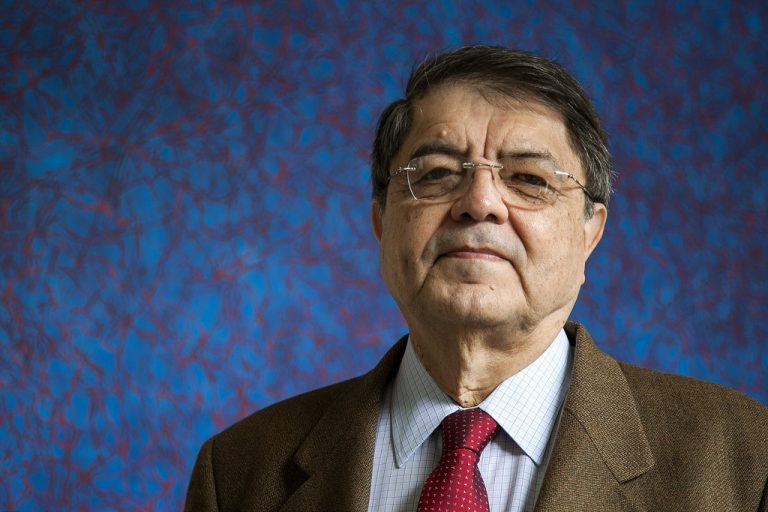22 de octubre 2021

Children of Exile: The Births “Sowing Hope” in the Camp of Nicaraguan Farmers

PUBLICIDAD 1M
PUBLICIDAD 4D
PUBLICIDAD 5D
During his speech at the IAPA Assembly, he defended the value of “words that cut like a knife,” which are what “dictatorships fear.”

The author and former vice president warns: “His continuance in power is unfeasible” while the elections are being moved up.
Nicaraguan author Sergio Ramírez, keynote speaker at the 77th General Assembly of the Inter American Press Association (IAPA), called on the international media not to “forget the case of Nicaragua.” The Central American country suffers the tyranny of Daniel Ortega and he defended the work of the country’s independent journalists, whom he said are doing underground journalism for the second time in history, now supported by social networks.
Ramírez recalled the “underground” journalism that developed in times of the Somoza dictatorship within churches, sometimes in the dark, to read statements and counteract censorship.
“Once again, we have underground journalism, only now not in the churches by candlelight but through social networks, clandestinely, within Nicaragua or from exile, journalists, assisted by anonymous correspondents, do it through broadcasts on YouTube, on Facebook Live, through podcasts or blogs,” he said.
“As never before, today’s underground journalism is the owner of words in Nicaragua,” he stated.
Ramirez insisted that the dictatorship “cannot remove from the mouths of those who, amidst the hardships of exile or the risks of hiding, defend freedom of expression and the right to inform.” This, even though the dictatorship wants a county “paralyzed by fear and silence,” while it is preparing “an electoral farce that does not have the least legitimacy.”
During his speech, he declared himself an exiled and committed writer, and therefore defended the value of “words that cut like a knife,” which are those that “dictatorships fear.”
Ramírez, who was Vice President when the current President of Nicaragua ruled for the first time (1985-1990), said that in Latin America the “real confrontation is between democracy and dictatorship.”
“Somoza begets Ortega,” pointed out the writer, who at the beginning of September presented his latest novel “Tongolele did not know how to dance,” the third in the saga of Inspector Dolores Morales. The novel is seized by Ortega’s Customs office. Currently in exile, Ramirez is accused of criminal offenses by the regime’s Prosecutor’s Office, which issued an arrest and search warrant against him.
He warned again those who use elections as a “pretext” to establish themselves in power and then change the rules of the game in order to stay in perpetuity, as, in his judgement, Ortega has done and warned that, to legitimize themselves in the next elections, he will try to use political prisoners as a bargaining chip.
“Journalists, political leaders, businessmen, bankers, students and seven presidential candidates are in prison. Without trial, without the right to defense, without medical assistance and under inhumane conditions,” he explained.
For this reason, the writer indicated that his “first request is that we do not forget those prisoners, that we keep alive the fact that they are imprisoned in a sinister jail.”
Ramirez said “the dictatorship does not have the least legitimacy” because it is a “police state,” as occurs in other countries such as Venezuela and Cuba. For this reason, he stressed that “rebellion begins with words.”
“I speak as a committed writer with words that are always sharp. This is what left or right dictatorships fear. I am a writer in exile with his books banned within Nicaragua and my contribution to the struggle for democracy will continue to be words,” he remarked.
He said that Nicaragua has “a fatal anomaly that has not yet been corrected,” noting “a dictatorship causes a revolution to overthrow a dictator and this revolution creates a new dictator who at the same time starts a new cycle of oppression.”
The Inter American Press Association (IAPA) began its annual meeting this Tuesday, October 19, with the message that without an independent press there is no democracy, and the precariousness of the media is bad for society.
The president of the IAPA, Jorge Canahuati, of the OPSA Group of Honduras, said at the opening of the 77th General Assembly that the last was a “disastrous semester” for press freedom.
Canahuati highlighted that nine journalists were assassinated and two “emblematic” media outlets, El Nacional from Caracas and La Prensa from Nicaragua, were closed and expropriated by “Governments in collusion with Justice,” among other “outrages.”
In addition, for the first time in 80 years of trajectory by IAPA, two deputy directors of the Commission on Freedom of the Press and Information of the organization, the Cuban Henri Constantini and the Nicaraguan Juan Lorenzo Holmann, have been detained in the last year and the second continues imprisoned more than 60 days later.
The 77th General Assembly of the IAPA, which was to be held in person in Madrid, but finally takes place virtually, brings together more than 70 speakers over four days to analyze the state of press freedom and the sustainability of the media.
With information from EFE.
This article was originally published in Spanish in Confidencial and translated by Havana Times
Archivado como:
PUBLICIDAD 3M
Confidencial es un diario digital nicaragüense, de formato multimedia, fundado por Carlos F. Chamorro en junio de 1996. Inició como un semanario impreso y hoy es un medio de referencia regional con información, análisis, entrevistas, perfiles, reportajes e investigaciones sobre Nicaragua, informando desde el exilio por la persecución política de la dictadura de Daniel Ortega y Rosario Murillo.
PUBLICIDAD 3D